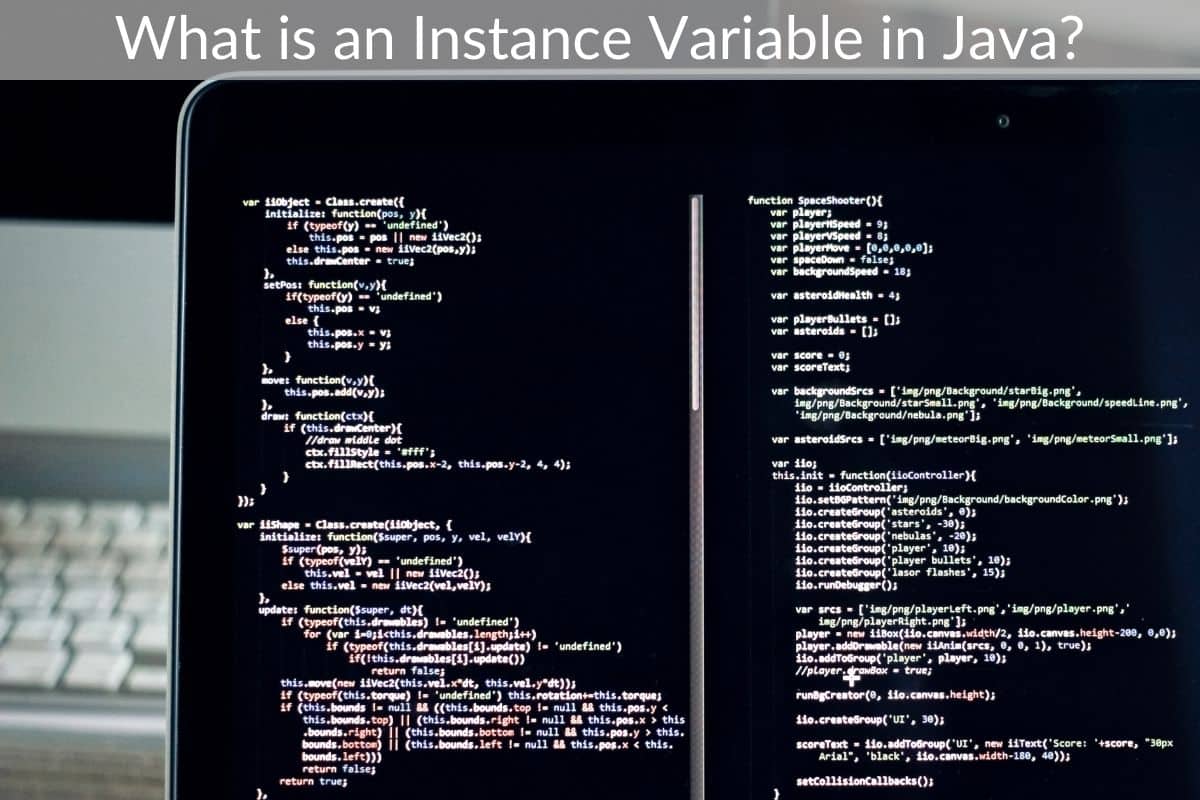Table of Contents
*This post may contain affiliate links. As an Amazon Associate we earn from qualifying purchases.
You may expect an interview concerning Java programming and are wondering what kinds of questions to expect. Java’s instance variable will likely pop up during such a discussion.?Therefore, in this article, we talk about what an instance variable is and how it works. We’ll also go through
Therefore, in this article, we talk about what instance variables are and how they work. We’ll also go through an example, to make everything sink in easier.
What is an Instance Variable?
Before understanding an instance variable Java, it is good first to describe a variable. Variables provide us with named storage, and programs can manipulate this storage. Each variable has a particular type that determines the size and layout of its memory, a range of values that it can carry and the various operations that are valid for the variable.
Therefore, instance variables are variables defined without the static keyword and not enclosed in any method declaration. Objects use them to store their various state (therefore, instance variables are object specific). Their values are instance specific, meaning they cannot be shared among different instances whatsoever.
Characteristics of Instance Variables
- During space allocation for an object in a heap, an area for each instance variable value is established.
- They can be created when the keyword ‘new’ is used to declare an object and destroyed upon the removal of the object.
- They can be called at a class level either before or after its use. Instance variables also have access to access modifiers.
- They can be reached by all methods, constructors, and block within the class. That is why you should make these variables private.
- They have default values. For instance, numbers and Boolean have their default values as 0 and false respectively.
- The values they hold need referencing by several methods, constructors or blocks, as well as crucial parts of an object?s state which are paramount across the class.
- Usually, they can be accessed directly by invoking the variable name within the class. Nevertheless, when dealing with static methods, they have to be called using their full qualified names. That is, ObjectReference.VariableName.
- They are declared in class, but outside of a method.
While answering this question, it is vital not to confuse them with a class variable. A class variable maintains only one shared value for all the class instances even in the absence of the instance object of that class. A static keyword changes an instance variable to a class variable. On the other hand, the two are close in the sense that their declaration is made at a class level.
Instance Variable Examples
public class Employee {
private double salary;
public Employee (String emp_Name) {
name = emp_Name;
public void setSalary(double emp_Sal) {
salary = emp_Sal;
}
}
In the above code, Employee is visible for all the child classes while salary is visible in employee class only.
It is crucial that you read the discussion on instance variable java keenly as most interviewers can tell if you hurriedly crammed the knowledge minutes prior to the interview. Make sure you tell us what you think about our answers to this common Java programming question.

